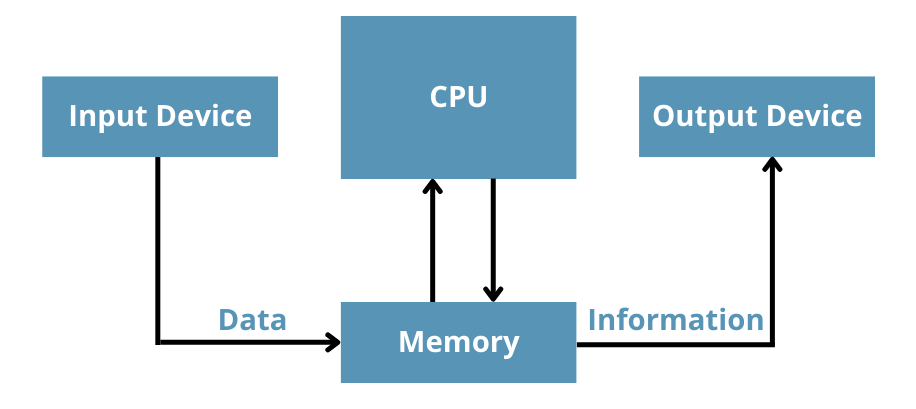Exploring Parallel Computing using MPI and C++: Part 6 - MPI I/O
 Rishabh Bassi
Rishabh Bassi
Introduction
Welcome back to our blog series on parallel computing using MPI and C++. In the previous posts, we covered various aspects of MPI programming, including parallel computing fundamentals, collective communication operations, sending/receiving messages, and load balancing. In this sixth installment, we will explore MPI I/O, a crucial aspect of parallel computing that provides parallel input/output operations for accessing and manipulating external files in parallel programs.
Understanding MPI I/O
MPI I/O enables parallel processes to read from or write to external files concurrently. In traditional serial programming, file I/O can become a performance bottleneck when dealing with large datasets. MPI I/O addresses this issue by allowing multiple processes to perform I/O operations simultaneously, thereby significantly improving I/O performance in parallel computing.
MPI I/O is particularly useful in scientific simulations, data analysis, and other applications where large volumes of data need to be read from or written to external files in parallel.
MPI I/O Modes: MPI I/O supports two modes of parallel I/O operations:
Independent I/O (Non-Collective I/O): In independent I/O mode, each process performs I/O operations independently without coordination with other processes. Each process can read from or write to different portions of the file without affecting other processes. While this mode provides maximum flexibility, it may lead to file contention issues and could result in suboptimal I/O performance.
Collective I/O: In collective I/O mode, all processes coordinate their I/O operations and work together to read from or write to the file as a collective group. The file is divided into file domains, and each process reads from or writes to its corresponding file domain. Collective I/O reduces file contention and can significantly improve I/O performance, especially when dealing with large datasets.
MPI I/O Functions
MPI provides several functions for performing I/O operations in parallel programs. Some commonly used MPI I/O functions include:
MPI_File_open: This function opens a file in parallel for reading or writing, creating a file handle that can be used for subsequent I/O operations.
MPI_File_close: This function closes an open file and releases the associated file handle.
MPI_File_read: This function reads data from an open file into the specified data buffer.
MPI_File_write: This function writes data from the specified data buffer to an open file.
MPI_File_seek: This function moves the file pointer to a specified position in the file.
MPI_File_set_view: This function sets the file view, allowing processes to access different portions of the file in collective I/O operations.
MPI_File_get_size: This function retrieves the size of the file in bytes.
Collective I/O with MPI
Collective I/O operations in MPI allow multiple processes to access and manipulate the file as a collective group. Collective I/O can significantly improve I/O performance by reducing the number of I/O operations and minimizing file contention.
In collective I/O, the file is divided into file domains, and each process reads from or writes to its corresponding domain. The file domains can be contiguous or non-contiguous, depending on the data distribution.
Example
Parallel File Write using MPI I/O Let's demonstrate how to perform a collective file write using MPI I/O in C++. Consider a simple example where each process writes its rank to a file in a collective manner:
cppCopy code#include <iostream>
#include <mpi.h>
int main(int argc, char** argv) {
MPI_Init(&argc, &argv);
int rank, size;
MPI_Comm_rank(MPI_COMM_WORLD, &rank);
MPI_Comm_size(MPI_COMM_WORLD, &size);
MPI_File file;
MPI_Status status;
MPI_Offset offset;
// Open the file in collective I/O mode
MPI_File_open(MPI_COMM_WORLD, "output.txt", MPI_MODE_CREATE | MPI_MODE_WRONLY, MPI_INFO_NULL, &file);
// Compute the offset for each process to write its data
offset = rank * sizeof(int);
// Write the data using collective I/O
MPI_File_write_at_all(file, offset, &rank, 1, MPI_INT, &status);
// Close the file
MPI_File_close(&file);
MPI_Finalize();
return 0;
}
In this example, each process opens the file "output.txt" in collective I/O mode and writes its rank to the file at a specific offset. The MPI_File_write_at_all function performs a collective write operation, ensuring that all processes write their data simultaneously.
Conclusion
MPI I/O provides essential functionalities for performing parallel input/output operations in parallel computing. It allows multiple processes to read from or write to external files concurrently, significantly improving I/O performance in parallel programs.
In this blog post, we explored MPI I/O, its modes, and its functions. We discussed the benefits of collective I/O and demonstrated a simple example of parallel file write using MPI I/O in C++. Collective I/O allows processes to work together efficiently, reducing file contention and improving overall I/O performance.
In the next part of our series, we will delve into advanced MPI programming concepts, exploring topics like process topologies, derived data types, and one-sided communication. These advanced concepts will further enhance your understanding and capabilities in parallel computing using MPI and C++. Stay tuned for Part 7!
Keep Bussing!
Subscribe to my newsletter
Read articles from Rishabh Bassi directly inside your inbox. Subscribe to the newsletter, and don't miss out.
Written by

Rishabh Bassi
Rishabh Bassi
A Computer Science Engineer with a demonstrated history of working in the software industry. I am currently studying Masters in Computer Science with specialization in Machine Learning from Texas A&M University, College Station. Skilled in Machine Learning, C/C++, Firmware Development, Java, Android Development, Python, Data Analysis, and R. I have been pursuing the Natural Language Processing and Deep Learning domain and published research work on Autonomous Tagging of Stack overflow Questions, Bacteria Detection areas. Creating and innovating stuff is something I'm enthusiastic about. Applying my talents to successfully implement solutions to the challenging problems at hand has been incredibly rewarding and inspirational.